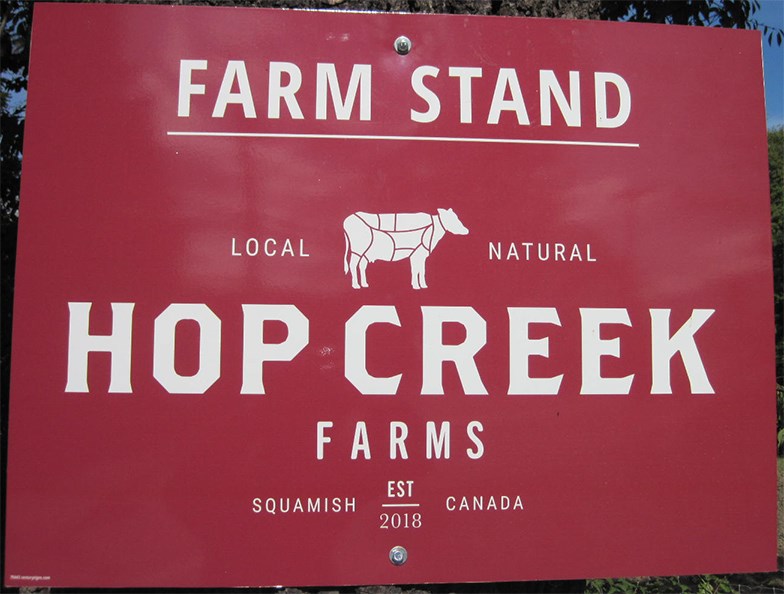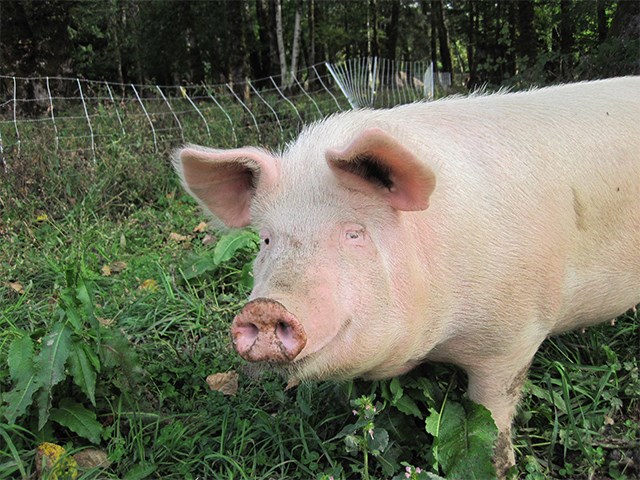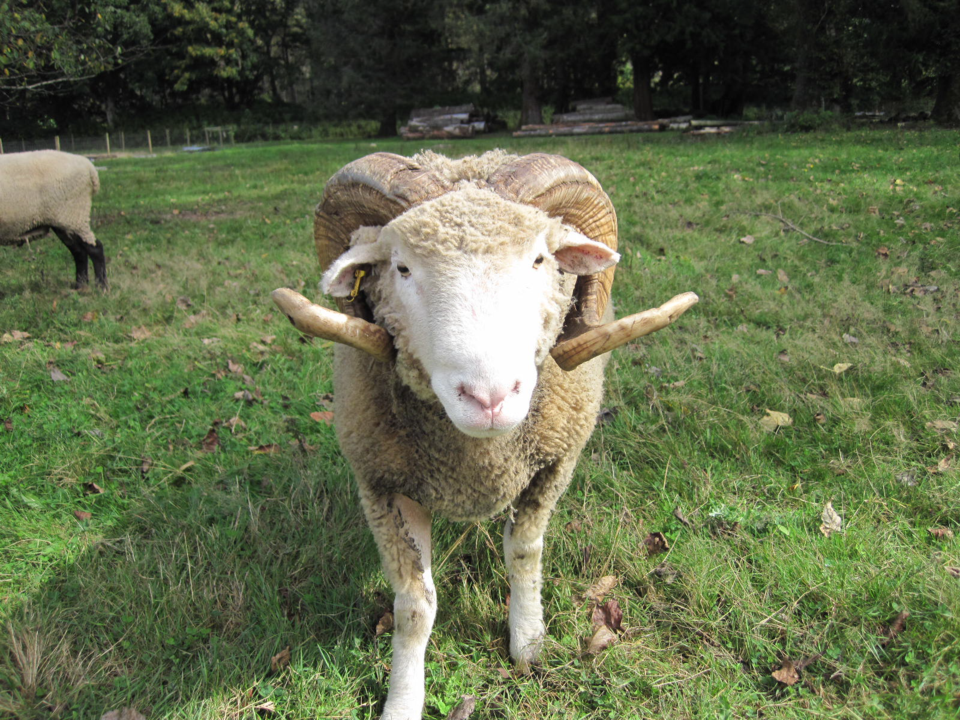If you have ventured through Brackendale lately, you are witness to an agrarian revolution. Hop Creek Farms, founded in 2018 beside the Easter Seals Camp, uses a technique called regenerative farming to grow free-range grass-fed and finished lamb, chicken and pork on 12 hectares of land.
Their grass-fed/finished beef comes from 350 Angus-cross cattle raised on family-owned Murphy Meadow Ranch in the Caribou, a 810 hectare ranch with access to 16,200 hectares of grazing land near 150 Mile House.
Put simply, regenerative farming captures instead of releasing carbon through a combination of no-till, crop rotation and composting, using negligible to no synthetic pesticides, herbicides or fertilizers.
This is a big change. Since the dawn of the Green Revolution in the 1940s, conventional farming has increasingly relied on petrochemicals, soil tilling, large mono-crops and fossil fuels.

In 2017, more than 7.4 million tonnes of pesticides were applied worldwide, nearly 91,000 tonnes in Canada.
Currently, soil carbon depletion is accelerating and CO2 and N2O emissions have skyrocketed, making agriculture responsible for about one-third of human-caused GHG emissions, according to Nature Magazine.
More than 98 per cent of sprayed pesticides fail to reach targeted species, to become pollutants of air, water, and soil, according to WorldAtlas.com.
In an ideal world, we'd grow food without using fossil fuels, which is the goal, according to Hop Creek Farm proprietors Burt and Steph Wright.
"Fertilizers and pesticides are an added expense and a short-term fix. If you don't add organic matter to your soil, you'll need to use increasing amounts of synthetic chemicals. We don't need them, so we don't use them," Burt says.
By regularly rotating animals to different plots, vital nutrients are recycled to feed soil microbes, facilitating nutrient absorption and new plant growth. It also helps reduce soil erosion, increases soil fertility, and crop yields.
"Pigs are the tillers," says Steph.

Another advantage is that the product is superior, the Wrights say.
Animals roam freely on the farm, are ethically grown and humanely treated, so less stressed. Grass-fed meat averages twice as much healthy Omega-3 fats versus regular beef, according to BerkleyWellness.com.
In contrast, conventional farm diets include grain and corn so is high in sugars, contributing to the growth of harmful bacteria such as E. coli. Sheep and lamb are fed grain on conventional farms but they don't need it. What they need is a high fibre grass diet to maintain gut health, Burt says.
"Because our chickens have a varied diet and range freely, they are larger, have that beautiful rich colour, and taste which I appreciate as a chef. It's important, especially these days, to know where your food comes from and how it's raised."
Besides delicious food, there are other, far-reaching advantages to regenerative farming.
"Agriculture is the one sector that has the ability to transform from a net emitter of CO2 to a net sequesterer of CO2. There is no other human-managed realm with this potential," according to CarbonCycle.org.
The goal of Squamish's Carbon Engineering is to produce machines that capture a million tons of CO2 per year at a cost of between $132 and $200 per ton. Contrast this approach to a new project launched by Indigo Agriculture with the aim of sequestering one trillion tons of CO2 from the atmosphere by incentivizing farmers to adopt regenerative agriculture practices.
Carbon farmers start earning $20 per ton of CO2 captured in the first year and they could earn an additional $100 to $200 per hectare a year, roughly doubling their profitability according to IndigoAg.com CEO David Perry.
Not only is that less costly than current Carbon Capture Sequestration (CCS) technologies, it is a huge improvement over how we've typically farmed over the last 50 years.
And that's a difference you can see, feel and taste!
Hop Creek Farm operates a stand on Government Road, across from the WaterShed Restaurant, which is open weekends 10 a.m. to 6 p.m..
For more information on Hop Creek Farms, go to hopcreekfarms.com/pages/about-us.
Matt Blackman is the founder of the Squamish Alternative Energy Group




